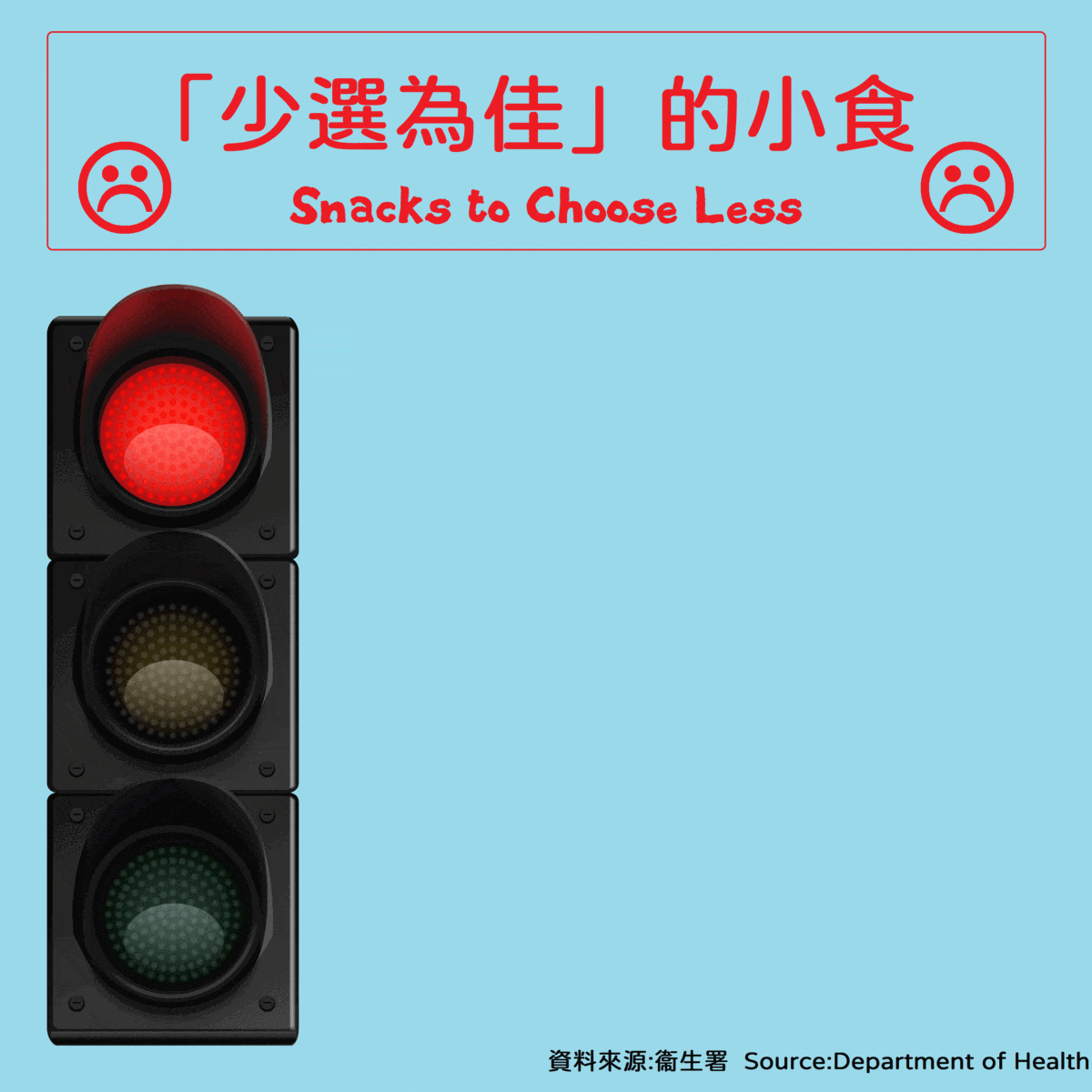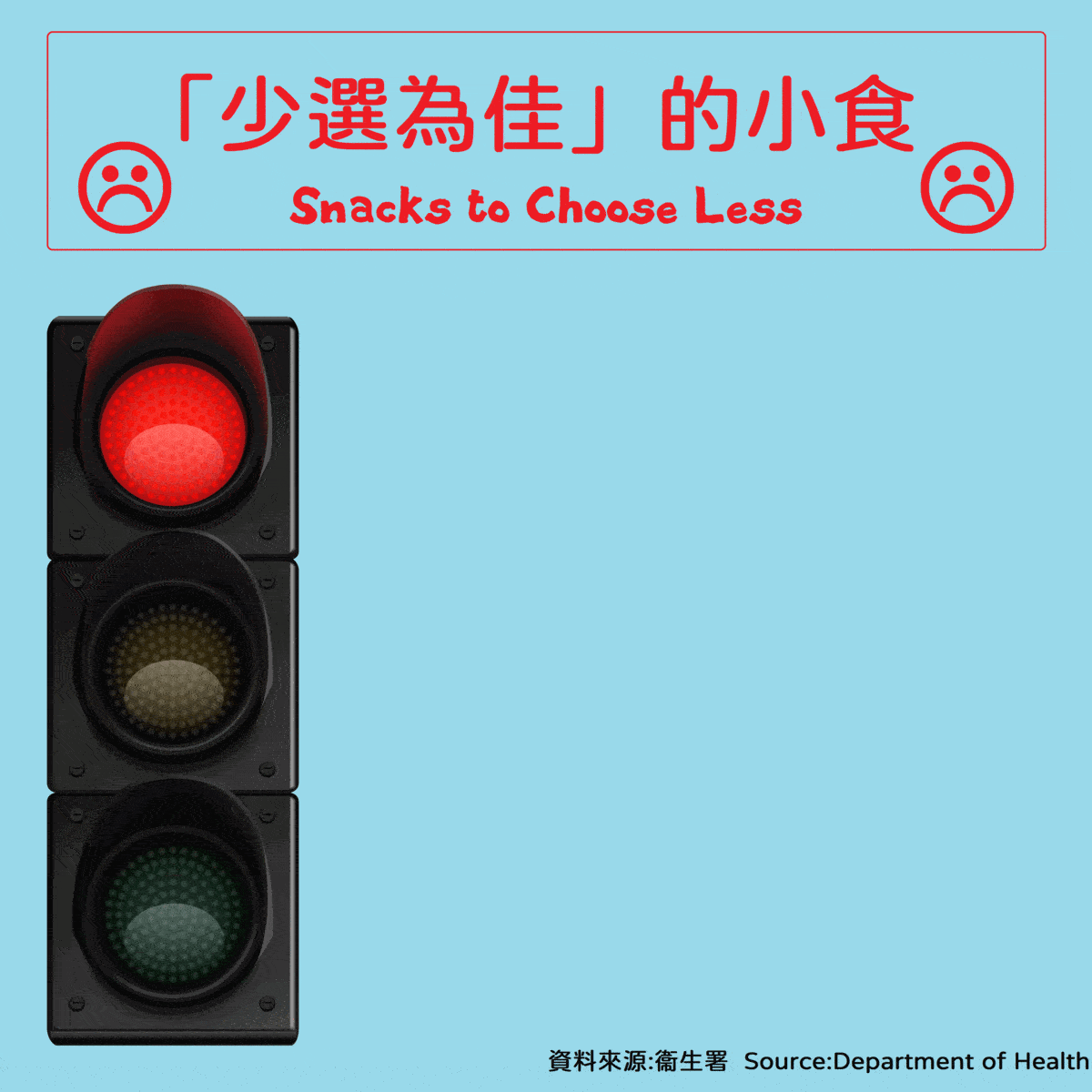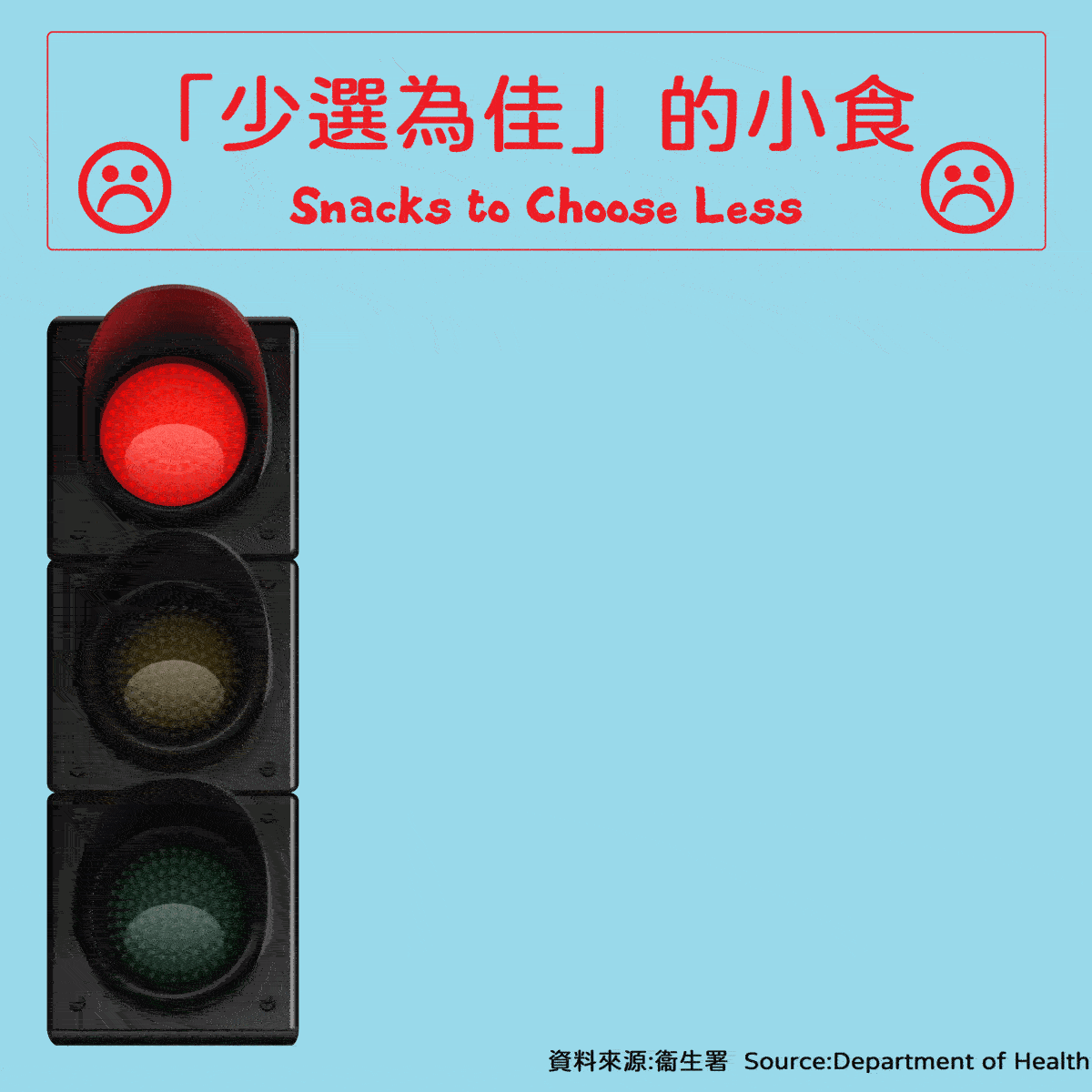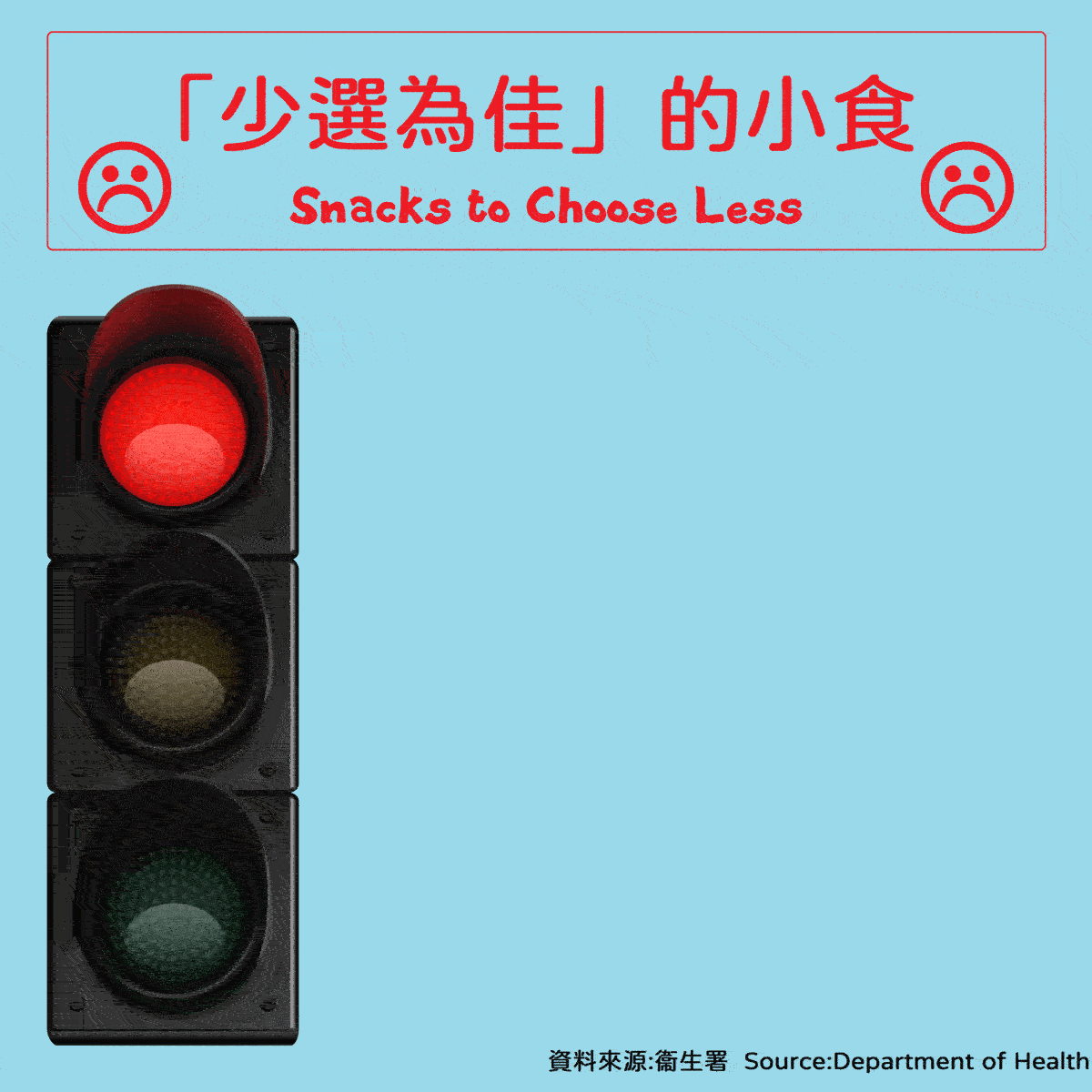
Healthy Snacks
Children are growing fast and physically active. They may not be able to replenish the energy consumed or obtain necessary nutrients their bodies required from the three main meals a day. Therefore, consuming healthy snacks help replenish the water and energy lost during learning as well as exercising, and help children obtain enough nutrients.
On the contrary, overeating or unhealthy snack choices would not only lead to excessive energy intake and result in overweight and obesity, but also reduce their appetite for main meals, which deter them from attaining comprehensive nutrition.
Therefore, parents should bear in mind the principles of healthy eating when giving snacks to children so that they can get the most benefits from snacks and nurture good eating habits. In addition, to reduce the risk of tooth decay, children should only eat snacks once between main meals and only drink water at all other times.
The following are nutritional guidelines for snack classification, which can be roughly divided into five categories:
| Grains: | Vegetables: | Fruits: |
.gif) |
 |
 |
| Meat, Fish, Egg and Alternatives: |
Other Food Items, Milk and Alternatives: |
 |
 |